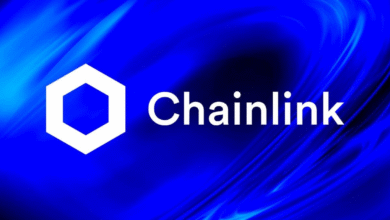Privacy Blockchain: Ensuring Compliance and User Sovereignty

Privacy blockchain is revolutionizing the way we think about personal privacy and financial transactions in an increasingly digital world. As governments tighten the grip on data through anti-money laundering laws (AML) and Know Your Customer (KYC) regulations, individuals’ rights to private financial transactions are becoming compromised. Proponents of cryptocurrency fervently argue against these restrictions, positing that innovations like Bitcoin can enhance financial freedom. However, this is complicated by the pseudonymity problem inherent in many cryptocurrencies, which can collide with regulatory frameworks aiming for transparency. A promising solution emerges in blockchain platforms like Concordium, which strive to balance compliance with user privacy, ensuring that financial transactions remain secure and anonymous where necessary, thus presenting a compelling alternative in the crypto landscape.
In the realm of distributed ledger technology, or DLT, the concept of privacy-focused networks has gained traction, offering a new dimension to digital transactions. These platforms, often referred to as confidential blockchains, address the growing need for secure identity verification while maintaining user anonymity. As businesses and regulatory bodies grapple with the complexities of modern finance, the integration of innovative solutions that accommodate KYC compliance without sacrificing individual privacy becomes critical. Furthermore, as traditional financial institutions begin to embrace the capabilities of these technologies, the conversation shifts towards the potential of self-sovereign data and the myriad of applications it can support. In this evolving landscape, privacy blockchain solutions are positioned as essential to navigating the future of finance, where both accountability and confidentiality are paramount.
The Importance of Privacy in Financial Transactions
Privacy in financial transactions is increasingly being recognized as a fundamental human right. However, the regulatory landscape, particularly through mechanisms like anti-money laundering (AML) laws and Know Your Customer (KYC) regulations, places significant constraints on this right. Governments argue that such regulations are necessary to prevent illicit activities and protect the financial system. Yet, for many individuals, especially those engaging with cryptocurrencies, these requirements can feel like an infringement on their freedom, causing a push towards innovative solutions that prioritize privacy while ensuring compliance.
Cryptocurrency advocates often tout Bitcoin and other decentralized currencies as vehicles for financial freedom, arguing that blockchain technology naturally supports privacy. Yet, the reality can be more complicated. As seen with the recent bans on privacy coins and scrutiny of crypto mixers, such as Tornado Cash, the challenges of maintaining user anonymity are considerable. The conversation around privacy moves from simply securing funds to achieving a balance between regulatory compliance and user privacy—an ongoing dialogue within the evolving financial landscape.
Navigating the Pseudonymity Problem in Blockchain
The ‘pseudonymity problem’ is a critical issue in the blockchain sphere, where wallet addresses represent users without revealing their identities. While this anonymity is appealing for privacy-conscious individuals, it poses significant dilemmas for regulators trying to enforce KYC laws. Individuals can create multiple wallet addresses, making it difficult to trace ownership and combat fraudulent activities. As Sharan Konerira from Concordium notes, this challenge undermines efforts to achieve mass blockchain adoption, as many potential users are wary of scams or government scrutiny related to their transactions.
Concordium tackles the pseudonymity problem by integrating identity verification protocols directly into its Layer-1 network. This innovative approach ensures that while users maintain control over their data, there is also a clear pathway for accountability when necessary. By implementing structured and legally-compliant identification processes, Concordium can create a blockchain environment that offers peace of mind for users while still enabling the privacy afforded by blockchain technology, heralding a new era in the dynamic intersection of crypto and regulatory frameworks.
How Privacy Blockchain Technologies Ensure Compliance
Privacy blockchain solutions, like those being developed by Concordium, aim to overcome the inherent tensions between privacy and regulatory compliance. By employing advanced identity protocols, these blockchains can protect users’ personal information while still meeting KYC and AML requirements. The decentralized nature of blockchain technology means that users have sovereignty over their identity data, assuring them that their information is not stored in a centralized location vulnerable to breaches or misuse.
The solution lies in an architecture that allows for identity verification without compromising user anonymity. For example, on the Concordium blockchain, identity information can only be accessed by qualified authorities within specific legal frameworks. This creates a safe environment where businesses can confidently engage in processes requiring KYC verification, ensuring that user privacy is preserved while satisfying the mandates of regulators. As a result, privacy blockchains present a compelling proposition for businesses looking to marry compliance with user privacy.
Balancing Transparency with Data Sovereignty
One of the essential discussions in the blockchain space is the need for transparency alongside data sovereignty. Traditional financial systems often lack transparency, with large entities managing the data and limiting user control. In contrast, blockchain technology introduces a level of transparency that can enhance trust between parties, yet it can also conflict with the desire for privacy. As more projects emerge to tackle this challenge, Concordium’s approach provides a strong framework. It allows for decentralized data storage while ensuring that sensitive information is only shared under strict legal conditions.
This balance ensures that users are not exposed to arbitrary data management practices that characterize centralized systems. By integrating transparency with decentralization, Concordium empowers users to manage their data actively. Not only does this foster trust among users and institutions, but it also paves the way for broader adoption of blockchain solutions in traditional business sectors, which are increasingly seeking reliable technology that respects user privacy and legal obligations.
The Evolving Role of Blockchain in Identity Verification
Identity verification is a pivotal component of any financial ecosystem, and blockchain technology is uniquely positioned to revolutionize this process. With the rise of digital currencies, the need for secure and verifiable identities has never been greater. Traditional methods often rely on physical documentation that can be forged or tampered with. In contrast, blockchain allows for immutable identity verification, making it possible to anchor personal data in a decentralized ledger that cannot be altered post-factum.
Concordium’s emphasis on built-in identity protocols exemplifies this transition. By enabling secure, verifiable identities, Concordium lowers the risk of fraud while ensuring compliance with existing regulations. These protocols assist in the development of a fostered trust-based economy, where participants can confidently transact without the fear of misrepresentation. Furthermore, by decentralizing the control of identity data, users maintain sovereignty over their information, adhering to the principles of both crypto privacy and compliance.
Mainstream Adoption of Blockchain through Regulatory Engagement
For blockchain systems to achieve mainstream adoption, they must engage with regulatory frameworks effectively. Many institutions remain wary of adopting cryptocurrency technologies due to regulatory ambiguity and the potential for legal repercussions. Concordium addresses these concerns by being transparent about its compliance strategies and approaching regulators with solutions that align with existing laws. By proving that blockchain can coexist with regulatory requirements, Concordium paves the way for wider acceptance in mainstream financial sectors.
Users and traditional businesses often seek the assurance that their new technology complies with regulatory standards, allowing them to operate without fear of backlash. Concordium’s proactive approach to engagement with regulators and its incorporation of compliance features offer a compelling case for potential adopters. This strategy not only mitigates risks associated with blockchain ventures but also invites more participants into the ecosystem, fostering a stronger, more reliable network capable of meeting the demands of both privacy-conscious users and regulatory entities.
Creating a Secure Environment for High-Impact Use Cases
High-impact use cases, such as identity verification, KYC applications, and financial contracts, require robust security measures to ensure that sensitive data is handled correctly. Concordium’s advances in blockchain technology provide the foundation for this necessary security, utilizing mechanisms like zero-knowledge proofs to enhance privacy without sacrificing accountability. These techniques allow one party to prove information without revealing the details, creating a new paradigm for secure digital interactions.
Concordium’s focus on high-value applications signifies its commitment to building a secure environment. By implementing stringent verification processes, it cultivates a culture of responsibility and trust among users. This is vital for sectors dealing with sensitive data, as they often face strict regulations regarding data privacy and storage. By fulfilling these requirements through a privacy-oriented blockchain, Concordium not only enhances safety but also ensures that businesses can operate confidently, knowing that they meet compliance standards.
Challenges and Opportunities in Implementing Blockchain Solutions
While the potential for blockchain in various sectors is tremendous, there are still multiple challenges that must be navigated. The need for clear regulatory frameworks often creates uncertainty, deterring businesses from fully embracing blockchain technology. Additionally, the complexity of integrating privacy solutions with existing financial systems can present significant hurdles. However, these challenges are not insurmountable. Innovative projects like Concordium exemplify how blockchain can be developed to address both compliance and privacy needs, ultimately driving adoption.
Moreover, these challenges also present opportunities for innovation. As the demand for secure identity verification and compliance-friendly technologies grows, the blockchain space is ripe for new solutions that can meet these evolving needs. Companies that can effectively bridge the gap between compliance and privacy will likely emerge as leaders in the industry. With Concordium’s commitment to create a secure and compliant blockchain environment, the stage is set for a wave of innovation that could reshape financial interactions while preserving user autonomy.
The Future of Blockchain: Merging Compliance with User Privacy
Looking ahead, the future of blockchain technology hinges on its ability to balance compliance with user privacy. As lawmakers and regulators become more engaged with the technology, the need for solutions that meet both sets of needs becomes paramount. Projects like Concordium are at the forefront, showcasing how it is possible to create a blockchain that offers the benefits of decentralization while ensuring that all interactions remain compliant with legal obligations. This vision of a privacy blockchain for regulatory environments might well become the standard for future developments.
As this balance is struck, we can expect to see an increasing number of traditional businesses embrace blockchain technologies. The pressure to comply with KYC and AML laws will remain, but with the integration of robust privacy features, these technologies will likely find their place in everyday applications. Ultimately, when privacy is assured within compliance structures, the potential for wider cryptocurrency adoption increases, enabling a future financial landscape where both privacy rights and regulatory needs coexist harmoniously.
Frequently Asked Questions
What is a privacy blockchain and how does it relate to KYC regulations?
A privacy blockchain is a type of blockchain that employs advanced cryptographic techniques to enhance user privacy while allowing for compliance with financial regulations, such as Know Your Customer (KYC) rules. This strikes a balance between ensuring the public’s right to private transactions and meeting regulatory requirements aimed at preventing fraud and illegal activities.
How does Concordium’s approach to blockchain compliance protect crypto privacy?
Concordium incorporates a built-in identity protocol that enables users to retain privacy while complying with blockchain regulations. By allowing identity verification at the protocol level, it ensures that sensitive data remains decentralized and private, only disclosed to qualified authorities when necessary, effectively protecting crypto privacy without sacrificing compliance.
What are the implications of the pseudonymity problem in blockchains for identity verification?
The pseudonymity problem refers to the challenge of identifying individuals behind wallet addresses within a blockchain network. This anonymity can facilitate scams and hinder mainstream adoption. Privacy blockchains like Concordium address this by implementing identity verification processes, ensuring that while users remain private, there is accountability and compliance with regulations.
Can privacy blockchains operate effectively under anti-money laundering (AML) laws?
Yes, privacy blockchains can operate under AML laws by incorporating features that ensure compliance without compromising user privacy. Projects like Concordium demonstrate this by implementing identity verification protocols that meticulously balance the need for privacy with regulatory requirements, allowing for secure transactions.
What role does crypto privacy play in the future of digital currencies?
Crypto privacy is crucial as digital currencies continue to evolve and gain mainstream acceptance. The ability to conduct private transactions will be essential for user confidence, yet it must be balanced with adherence to regulations like KYC and AML. Privacy blockchains aim to facilitate this balance, helping to secure personal information while supporting regulatory compliance.
How can businesses benefit from using a privacy blockchain like Concordium for identity verification?
Businesses can leverage privacy blockchains like Concordium to ensure regulatory compliance while maintaining user privacy. By integrating a system that provides strong identity verification, companies can reduce risks associated with fraud, comply with KYC requirements, and still protect user data, thus building trust with their customers.
What challenges do privacy blockchains face in achieving regulatory compliance?
Privacy blockchains face challenges such as navigating complex regulations and the risk of being labeled as facilitators of illicit activities due to their anonymity features. To address this, projects like Concordium are developing frameworks that integrate compliance measures directly into their architecture, ensuring that users can enjoy privacy while meeting legal obligations.
Are there any limitations to the privacy offered by blockchain compliance solutions?
While blockchain compliance solutions provide enhanced privacy protections, limitations may arise in cases where identities must be disclosed to regulatory authorities. Such disclosures are designed to safeguard against misuse but can compromise user anonymity. Privacy blockchains like Concordium aim to minimize these limitations by implementing strict protocols on when and how identity data can be accessed.
What is the significance of decentralized identity verification in privacy blockchains?
Decentralized identity verification is significant in privacy blockchains as it allows users to control their personal data while enabling compliance with KYC and AML regulations. This reduces the risk of data breaches common in centralized systems and enhances user privacy, thereby fostering greater trust in blockchain technology.
| Key Point | Description |
|---|---|
| Personal Privacy | Personal privacy is essential yet is often compromised by government regulations like AML and KYC. |
| Challenge of Pseudonymity | Bitcoin’s pseudonymity can conflict with government regulations, raising concerns about anonymity in cryptocurrency transactions. |
| Concordium’s Solution | Concordium uses identity protocols for user identification, ensuring compliance without compromising privacy. |
| Self-Sovereignty Advantage | Blockchain offers users control over their data, but this leads to challenges like scams and fraud. |
| Mainstream Adoption | Concordium aims for mainstream users, addressing their concerns while maintaining effective privacy measures. |
| Zero-Knowledge Proofs | Innovative cryptographic techniques enhance security and privacy within Concordium’s ecosystem. |
| Responsibility in Blockchain | The need for regulation and accountability in blockchain to protect users while enabling privacy. |
Summary
Privacy blockchain is becoming a critical topic as it encompasses the need to protect personal information amidst increasing governmental oversight. As blockchain technology evolves, it aims to balance user privacy with regulatory compliance, particularly through projects like Concordium, which endeavors to provide a secure and private environment for digital transactions while meeting legal standards. This ensures that users can maintain control over their data without risking exposure to malicious entities or excessive regulation.



